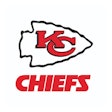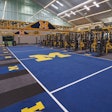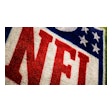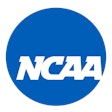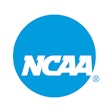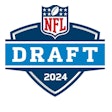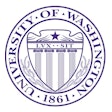Sports and fitness professionals are discovering the ease and rewards of continuing their education beyond certification.
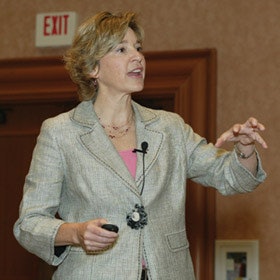
Ensuring long-term employment in the workforce through the pursuit of higher education may seem an elusive undertaking for sports and fitness industry professionals. For instance, just how is a personal trainer or fitness instructor already armed with bachelor's and master's degrees in kinesiology or exercise science, plus an accredited fitness certification, supposed to keep climbing the health club career ladder?
The answer may be continuing education programs, in which course content is more advanced than that offered in entry-level certification courses. Primarily delivered online or in other nontraditional settings such as industry conferences, these courses are designed especially for working professionals who lack the time and money to return to the formal classroom, but nonetheless wish to stay abreast of the latest knowledge in their respective fields - and be recognized for it. "Just within the past three years, we're seeing a trend of more employers wanting their people to be certified beyond the master's degree," says Betsy Smith, director of continuing education and special projects at the United States Sports Academy, a Daphne, Ala.-based accredited, nonprofit sports university that offers sport-specific academic programs, many of which are delivered online. "The more courses you take, the more you show your employer that you're taking the extra time to educate and reeducate yourself. Folks are now getting raises, even promotions."
In terms of course options, professionals also are getting what they want, when they want it - from "Tai Chi for Arthritis" to "Breast Cancer Recovery: On Land and In Water" to "Lifestyle Fitness Coaching," all three of which are available online through the American Council on Exercise's continuing education program. "If you offer online content, you can clearly reach more people in all parts of the country, so they don't have to spend hours driving or flying to class," says ACE executive vice president Robyn Stuhr. "We also find that people like the convenience of online classes - that self-paced, self-directed learning environment. They can do their work at 11 o'clock at night in their shorts."
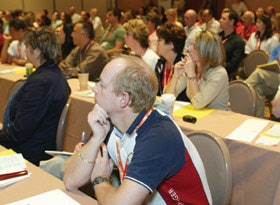
Given the financial limitations of its clients, the Cooper Institute began taking its programs to them, first traveling to federal law enforcement agency training academies and, later, to military installations abroad. "Being a former military man myself, I was very tuned in to the fact that we needed to go out to these organizations and help them on site with their training systems," says Reynolds, noting the Cooper Institute's initial risk and eventual reward involved in shifting its business strategy from a primary focus on educating individuals and small groups to contracting with large agencies to train all of their fitness professionals. "We knew we weren't going to make the money that we had traditionally made serving individuals. But over time, my thought was that if we got into these systems and treated their people right, they would never let us go."
The Cooper Institute's gamble paid off, helping set a precedent of customer-oriented service that has since been widely practiced by other sports and fitness education providers. In fact, the National Academy of Sports Medicine's director of education, Scott Lucett, suggests that by making the educational process more accessible for fitness professionals, organizations like his are helping more instructors stay on top of their game and are thus improving the workout experience for their clients on the fitness floor. "Fitness professionals are working 50 to 60 hours a week trying to make ends meet, and unfortunately don't have a whole lot of time to spend going to continuing education courses," he says. "The more ways you can provide them the educational content, the easier they're able to access it, get through it and show competency. That's the key."
In recent years, online programming has emerged as the choice means of continuing education content delivery for organizations like ACE and NASM. Accessed via sports and fitness education providers' web sites, not only are online courses convenient, they also represent a dynamic departure from dull lectures. Still, online learning isn't for everyone - or, for that matter, every age group. According to Reynolds, most health club personal trainers who take Cooper Institute continuing education courses have grown up in an online, on-demand world. By contrast, students in the institute's off-campus programs are old enough to remember life before the PC. "We get a lot of seasoned people in their late 30s, 40s and 50s," he says. "The age difference between our personal trainers and students in our off-campus courses is dramatic."
Stuhr acknowledges that some subjects better lend themselves to live interaction. "In a very practical course on core conditioning or disability strength training, you might want to actually work with somebody who can show you how to modify your client's body posture. You can't really learn that from a book," she says. "Some people are really into the online stuff, and other people like to interact face to face. Because it's about movement, they want to feel it and see it."
Lucett believes that people of all learning types can benefit from online courses that combine written information with interactive demonstrations. For instance, reading assignments can be enhanced with photos or narrated PowerPoint slides. Students can watch streaming videos of course instructors demonstrating various movements or exercises (of course, if a student has difficulty catching on to a particular concept, a video can be viewed as often as necessary). "We've really tried to create as blended a learning solution as possible," says Lucett. "If you can use video footage and imagery to show people what it is that you're talking about, they're going to be able to better understand the information. When you connect all the dots, online delivery can be just as effective as a live workshop."
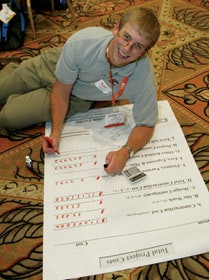
Although students can register at any time, they must complete their courses within 16 weeks. Throughout the "semester," regular feedback is available via e-mail or discussion board correspondence with fellow students or during online "office hours" held by course administrators. "The course facilitator or our sports faculty can answer any questions the students have," says Smith. "We're pretty accessible if folks need help." There also are ample opportunities for self-assessment, with short quizzes administered at the end of each week's unit. These quizzes don't count toward the final grade, which is wholly determined by a comprehensive final examination. A score of at least 70 percent is required to pass a course and earn four continuing education units.
Before enrolling in a course, Lucett recommends that professionals find out which organizations recognize the credits. Courses that satisfy continuing education requirements for multiple certifications - oftentimes, seminars or workshops at leading industry conferences fit the bill - are ideal. "Everything that NASM develops, we submit to other organizations to be able to apply CEUs to our course," he says. "It's a great marketing tool for us if people are able to enroll in a workshop or course and know that they're going to be able to apply CEUs to multiple organizations. It makes it a little bit more appealing for people to attend."
It's worth pointing out that by itself no continuing education program can boast third-party accreditation. NASM board of certification manager Jessica Carey theorizes that because the content of these courses essentially represents an extension of fundamental knowledge necessary to attain entry-level certifications from organizations such as ACE, the Cooper Institute, NASM and others, there currently is no industry-wide push to accredit them. Besides, it would be troublesome for education providers to go through the accrediting process for countless specialized courses that appeal to only a handful of people, courses covering such distinct subjects as "Optimal Training for the Prenatal Client." "Continuing education is mostly coursework that supports and enhances a certification, but it's not deserving of a certification in its own right. In other words, it's not specifically for a job or a career that can be defined in and of itself," says Carey. "Prenatal fitness specialist is not really a job."
That said, hundreds of narrowly focused continuing education courses are being marketed to sports and fitness professionals by dozens of independent consultancies, any of which can claim to be an education provider. Oftentimes, these companies and their products are legitimate, as evidenced by the vast number of specialized courses created by outside organizations but approved and marketed by ACE on its web site. "If someone wants to provide the education - whether it's a seminar, workshop, DVD or book they've developed - and they'd like us to approve it, we have a process whereby they can apply to be able to grant continuing education credits for their course," says Stuhr. "Their instructor has to meet certain qualifications, and they have to send us a description of the course and its objectives, a lesson plan or an outline, and a bibliography. Finally, the course has to cover an area that we feel would be of help to our professionals."
But some courses aren't much help, says Carey, who offers a word of caution to professionals who sign up for courses from non-recognized sources. "If the conference or continuing education course that you select falls in line with the performance domains of an accredited certification organization, then it's very likely you're going to receive credit for it," she says. "If it doesn't, you might be dancing on the line."
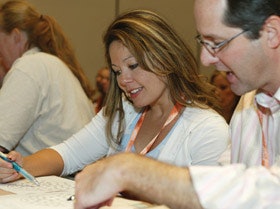
Other education providers believe that professionals are better served through customized training programs. "I do my best to customize my training to the needs of the individual organization," says the Cooper Institute's Reynolds. "For example, we now have a law enforcement fitness basics course, a military leadership fitness course and a fire service fitness specialist course. I've asked our staff to give me the best pieces of the metrics so that I can sit down with the leaders of different organizations and ask them, 'Where do you most need help? What can I do to help you?' I want a course to meet the needs and objectives of each organization's mission statement."
Regardless of how courses are delivered, employers' reasons for encouraging sports and fitness professionals to pursue continuing education likely will remain the same: They want employees who are constantly evolving to meet the ever-changing sports and fitness needs of their clientele. Reynolds recalls a Navy commander who had high expectations for the Cooper Institute course in which his fitness program managers were enrolled. "He said to me, 'Roger, I need to have my people be able to go back to their jobs and make a difference,' " he says. "Their becoming capable of working with other people required more than just taking a test. They needed to go back to their jobs not only with the knowledge, but also the hands-on experiences that would enable them to make a difference."


















